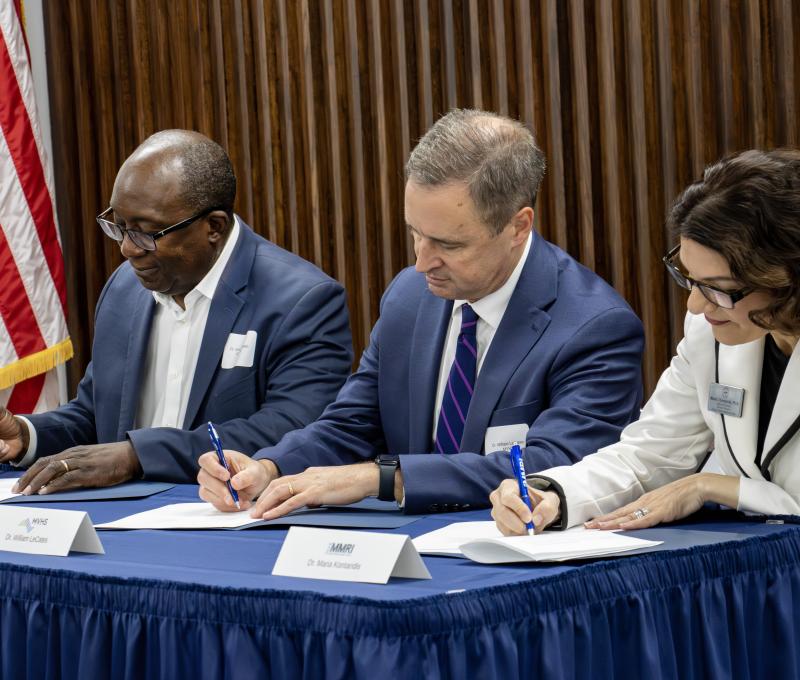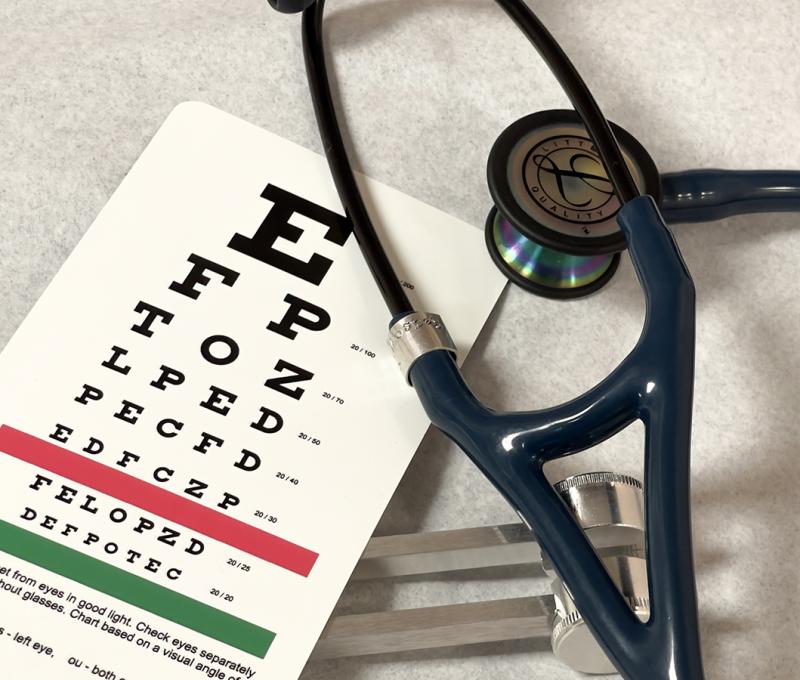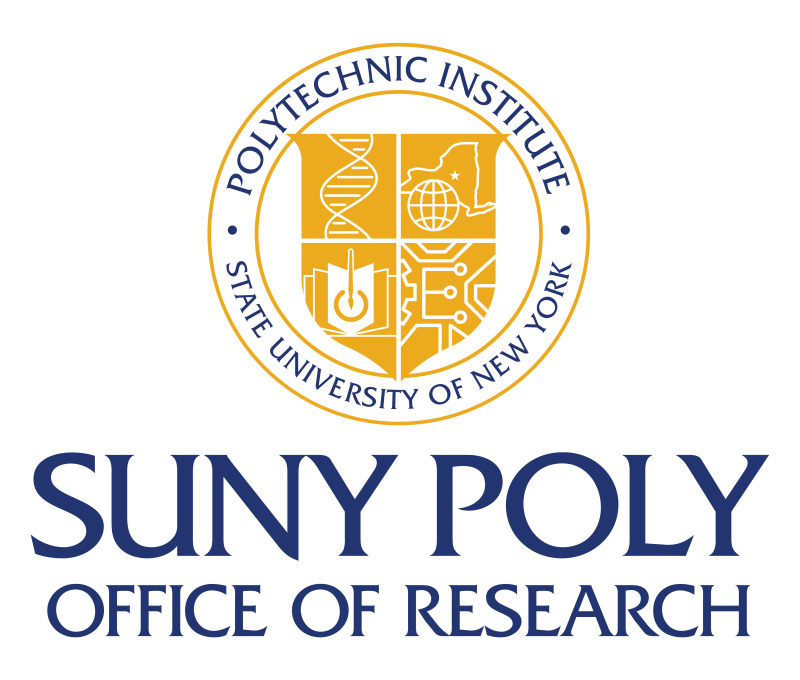SUNY Poly Biotech Startup Awarded $225,000 for Development of
Revolutionary Technology That Can Cause Viruses to Self-Destruct

For Release: Immediate – June 15, 2015
Contact: Jerry Gretzinger, Vice President of Strategic Communications and Public Relations
(518) 956-7359 | jgretzinger@sunycnse.com
National Institutes of Health Grant Supports HocusLocus, LLC’s RNA-Based ‘Genetic Switch’ Technology Which Could Change the Future of Health Care with More Targeted Treatment
ALBANY, NY – As a direct result of Governor Andrew Cuomo’s leadership in making New York State the epicenter for high-tech research and business opportunities, SUNY Polytechnic Institute’s Colleges of Nanoscale Science and Engineering (SUNY Poly CNSE) today announced that SUNY Poly CNSE startup HocusLocus, LLC, in partnership with the SUNY Poly CNSE NanoCollege, has been awarded $225,000 by the National Institutes of Health (NIH) for research leading to an antiviral approach using an RNA-based platform technology, referred to as “sxRNA.” This technology provides a revolutionary capability that allows researchers to switch “ON” or “OFF” the expression of a desired gene, which can kill targeted cells, such as viruses, or promote the successful development of other cells, such as stem cells.
“This National Institutes of Health award is a testament to Governor Andrew M. Cuomo’s public-private innovation model for New York State, and it leverages SUNY Poly CNSE’s unparalleled resources and faculty expertise to support HocusLocus’ researchers as they look to commercialize this incredible nanobiotechnology which could transform healthcare as we know it,” said SUNY Poly President and CEO Dr. Alain Kaloyeros. “Governor Cuomo’s vision that pairs academic knowledge and resources with business know-how has continued to pave the way for exciting investments such as this, proving that New York State is at the leading edge of potentially game-changing research which could improve the lives of millions of people around the world.”
 “HocusLocus is proud to be recognized by the National Institutes of
Health as we continue our collaborative effort with SUNY Poly CNSE’s
pioneering faculty, staff, and students to effectively mass produce
our unique sxRNA switch technology that has wide implications for
human health outcomes,” said CEO of HocusLocus Ted Eveleth. “This
funding is enabling HocusLocus to take the next step in the
development of an antiviral therapeutic, a milestone that we are
excited to mark along with our SUNY Poly CNSE partners. It signifies
the start of a bright future for this kind of high tech
manufacturing in America—and it’s all starting right here in New
York State.”
“HocusLocus is proud to be recognized by the National Institutes of
Health as we continue our collaborative effort with SUNY Poly CNSE’s
pioneering faculty, staff, and students to effectively mass produce
our unique sxRNA switch technology that has wide implications for
human health outcomes,” said CEO of HocusLocus Ted Eveleth. “This
funding is enabling HocusLocus to take the next step in the
development of an antiviral therapeutic, a milestone that we are
excited to mark along with our SUNY Poly CNSE partners. It signifies
the start of a bright future for this kind of high tech
manufacturing in America—and it’s all starting right here in New
York State.”
The NIH funding results from the Small Business Technology Transfer (STTR) program, which seeks to support the commercialization of academic inventions and discoveries that could have valuable ramifications for the improvement of human health. The grant will support RNA-based research that is being conducted by a team of HocusLocus researchers at SUNY Poly CNSE’s $20 billion Albany NanoTech Complex and by faculty, staff, and students led by Dr. Scott Tenenbaum, SUNY Poly CNSE Associate Professor of Nanobioscience and co-inventor of the switch technology, along with SUNY Poly CNSE Bioinformaticist and co-inventor Frank Doyle. More specifically, the award will enable the manufacture of the RNA switch platform, an organic molecule “transistor” that utilizes a novel regulatory mechanism to control the selective expression of proteins in specific cells. This technology could be applied in a number of ways, including by targeting latent viruses or cancer cells and then utilizing their own RNA to eliminate them.
“Governor Andrew Cuomo has established New York State’s high-tech ecosystem as the ideal location for academic-corporate partnerships, and this innovation corridor is enabling companies such as HocusLocus to collaborate with SUNY Poly CNSE’s top tier researchers and students in the production of this advanced RNA switch technology so that we can address critical health concerns that continue to impact the lives of countless people,” said Dr. Tenenbaum. “This funding not only supports jobs and research opportunities in New York State, it also supports our exciting, unique approach to medical care that could become the foundation of a number of treatments that millions of people may one day rely on.”
“The basis of the sxRNA technology is truly the result of SUNY Poly CNSE’s unique research environment which has powered our attempt to explain how the so far unexplained portions of the genome might actually be functioning,” said Doyle. “We realized that if the hypothesized interactions were, in fact, a naturally occurring phenomenon, we might be able to ‘hijack’ them to act as a therapeutic platform. It has been an exciting process to design and write the computer programs to look for natural examples of the interactions we envisioned, finding a number of possible instances and using those as starting points for designing all of the sxRNA constructs to date.”
HocusLocus, anchored at SUNY Poly CNSE’s Albany campus, is an RNA-based therapeutic/molecular tool company that has previously been awarded funding through the SUNY Technology Accelerator Fund (TAF) and the University at Buffalo Center for Advanced Biomedical and Bioengineering Technology (UB CAT). HocusLocus has also received earlier grants from federal agencies including the NIH, and, as announced by Governor Andrew Cuomo in 2013, the company received funding from the Eastern New York Angels, a member managed fund which provides seed funding to early stage companies in the Eastern New York region.
####################
SUNY Polytechnic Institute. SUNY Polytechnic Institute (SUNY Poly) is New York’s globally recognized, high-tech educational ecosystem, formed from the merger of the SUNY College of Nanoscale Science and Engineering and SUNY Institute of Technology. SUNY Poly offers undergraduate and graduate degrees in the emerging disciplines of nanoscience and nanoengineering, as well as cutting-edge nanobioscience and nanoeconomics programs at its Albany location and undergraduate and graduate degrees in technology, including engineering, cybersecurity, computer science, and the engineering technologies; professional studies, including business, communication, and nursing; and arts and sciences, including natural sciences, mathematics, humanities, and social sciences at its Utica/Rome location. Thriving athletic, recreational, and cultural programs, events, and activities complement the campus experience. As the world’s most advanced, university-driven research enterprise, SUNY Poly boasts more than $20 billion in high-tech investments, over 300 corporate partners, and maintains a statewide footprint. The 1.3 million-square-foot Albany NanoTech megaplex is home to more than 3,500 scientists, researchers, engineers, students, faculty, and staff, in addition to Tech Valley High School. SUNY Poly operates the Smart Cities Technology Innovation Center (SCiTI) at Kiernan Plaza in Albany, the Solar Energy Development Center in Halfmoon, the Central New York Hub for Emerging Nano Industries in Syracuse, the Photovoltaic Manufacturing and Technology Development Facility in Rochester, and the Smart System Technology and Commercialization Center (STC) in Canandaigua. SUNY Poly founded and manages the Computer Chip Commercialization Center (Quad-C) at its Utica location and also manages the $500 million New York Power Electronics Manufacturing Consortium, with nodes in Albany and Rochester, as well as the Buffalo High-Tech Manufacturing Innovation Hub at RiverBend, Buffalo Information Technologies Innovation and Commercialization Hub, and Buffalo Medical Innovation and Commercialization Hub. For information visit www.sunycnse.com and www.sunypoly.edu.








